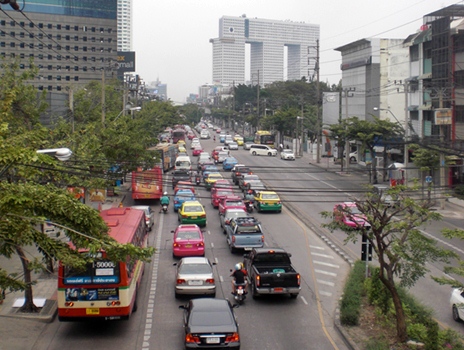I was talking to a Thai friend a couple of weeks ago about Thailand’s first-car scheme. Even though she had bought a car through the scheme, she was saying how Thailand’s first-car scheme was bad for many buyers and for Bangkok traffic as well.
After all, with more than 1.2 million people taking advantage of the program, the scheme has put more than 300,000 more cars on Bangkok roads already with more expected as ordered cars roll off the assembly line.
As if traffic in Bangkok wasn’t bad enough to start with, since the first-car scheme was implemented in Thailand, it is even worse now.
Thailand’s first-car scheme is also bad for buyers, as a news story circulating the Thai news media this week is proving. In the less than a year since the scheme expired, more than 2,000 people have already had their cars repossessed as they couldn’t afford the payments. More are expected to follow.
The scheme allowed first-time car buyers to purchase a new car and then get a sizeable rebate of up to 100,000 baht ($3,300) within the first two years. If they don’t keep the car for at least five years, however, that rebate has to be paid back to the government and will be deducted from the car buyer’s bank account.
As my friend said, that’s when the next round of ‘problems’ will hit, as first-time car buyers accept the rebate, spend it and then have to give up or sell their car. They will then be liable for the 100,000 baht the government gave them.
The weakness of the government scheme was obvious to most, even when it was first announced.
To the Thai government, however, being popular and getting people to vote for them was obviously more important than Bangkok’s already congested streets and the thousands of Thais who will end up losing a huge chunk of money in the first-car scheme. Money that they cannot afford.

